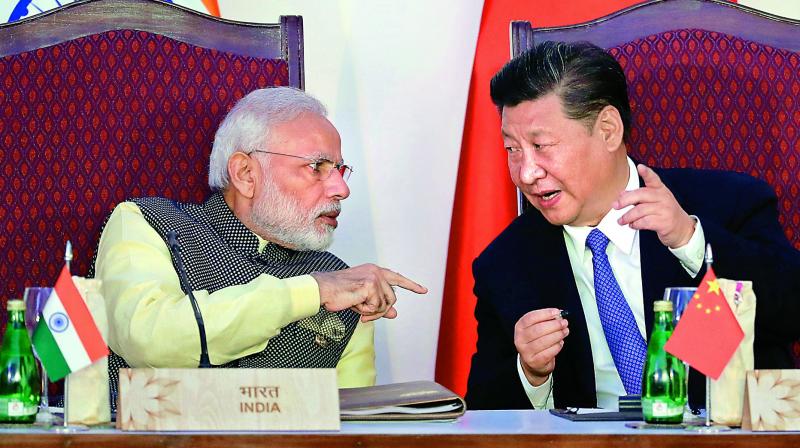India fumes at China’s reference to Kashmir
New Delhi made it clear that China has no business commenting on India’s internal affairs, and that Jammu and Kashmir is an integral part of India.

Chennai: With less than two days to go for the second informal summit between Chinese President Xi Jinping and Prime Minister Narendra Modi, controversy hit on Wednesday evening. New Delhi made it clear that China has no business commenting on India’s internal affairs, and that Jammu and Kashmir is an integral part of India.
This angry response was provoked by a reference to Kashmir in a meeting between Xi and visiting Pakistan Prime Minister Imran Khan in Beijing. Modi will clearly tell Xi at Mahabalipuram near Chennai on October 11-12 that the revoking of Article 370 and the bifurcation of J&K into two Union territories is India’s internal matter.
MEA spokesperson Raveesh Kumar, in response to a media query on the Kashmir reference in the Khan-Xi meeting, said: “We have seen the report regarding the meeting and which refers to their discussions on Kashmir. India’s position has been consistent and clear that J&K is an integral part of India. China is well aware of our position. It is not for other countries to comment on the internal affairs of India.”
A joint Sino-Pakistan press statement from Beijing was quoted as saying, “The Pakistan side briefed the Chinese side on the situation in J&K, including its concerns, position, and current urgent issues. The Chinese side responded that it was paying close attention to the current situation in J&K and reiterated that the Kashmir issue is a dispute left from history, and should be properly and peacefully resolved based on the UN Charter, relevant UNSC resolutions and bilateral agreements.”
The Sino-Pakistan statement further said, “China opposes any unilateral actions that complicate the situation. The two sides underlined that a peaceful, stable, cooperative and prosperous South Asia was in common interest of all parties. Parties need to settle disputes and issues in the region through dialogue on the basis of equality and mutual respect.”

